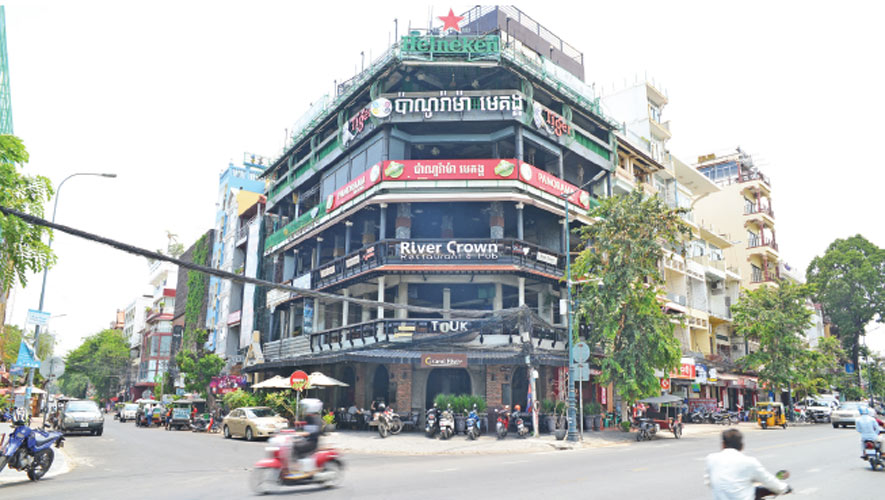Buying vehicles on credit relatively rare but increasing
For the latest Cambodian Business news, visit Khmer Times Business
Cambodia continues to be on unfamiliar ground for transport hire purchase (HP) or, as the banks would call it, the vehicle loan market. However this has not stopped it from growing.
Past news reports showed a gradual rebound in 2016 while before that there was a drought after the enforcement of a 10 percent value added tax (VAT) that slowed down sales of vehicles.
The concept of HP in Cambodia does not hold the same definition as a hire purchase system in other countries.
Group managing director of Acleda Bank Plc In Channy says banks in other countries would assess the applicant’s general income in order to approve a loan. However in Cambodia, vehicles are often used as a collateral asset in order for the loan to be approved.
He goes on to say that banks in the Kingdom are more cautious and would carry out thorough assessments before approval because lending money for a car purchase, for example, is considered a luxury loan.
However, according to Phnom Penh Commercial Bank (PPCBank) Cambodia, its customers who buy a vehicle are becoming increasingly diverse and the trend of purchasing them is leaning towards more convenience usage rather than for luxury purposes.
While the bank says a valid market is being formed, however, it also mentions that in order for the HP sector to become active, institutional arrangements such as maintenance of tax benefits will be required.
In the Kingdom, the current default rate on vehicle loans is slightly lower than that of general business loans. Loans for vehicles are considered to be mortgages but compared with real estate mortgages, the possibility of repossession is low if the delinquency is prolonged. Therefore, it is necessary to select a scheme that focuses on good customers and prevents the institutionalisation of delinquent loans.
In terms of the potential the market holds, the bank believes that the sector is likely to expand the scope of existing customers as it continues to pique more of the country’s banks’ interest.
50 percent annual increase
By the end of last year, PPCBank saw a gradual rise of vehicle loan applicants to 800 by the end of June 2019 from 600 while the number of monthly loan applications is around 40 to 70. Vehicle loans totalled 13.7 million dollars, which was 50 percent more than at the end of last year and well above the overall loan growth rate.
“It is estimated about 3,000 to 4,000 units are being registered monthly,” PPCBank says in a written statement.
“In PPCBank, we provide car loans for both type of vehicle, new and second hand ones. There is no big restriction on the type of vehicle,” it adds. However, in the case of commercial values which involve more than 2.5 tons or more than 28 vehicles, the purpose of the loan is different from the consumer loan,” the bank says. It is considered to be a business loan and the bank would conduct a thorough examination to check for eligibility.
Acleda on the other hand saw up to 260 car loan applicants in the first half of this year compared with last year, when the number was 228. While there is a rise in the numbers, Channy compares this with the total number of the bank’s borrowers and says the numbers are still relatively low. The Kingdom is one of the few countries in the region that has large imports of used vehicles.
More costs to bear
It tends to be higher earners boosting the market because of the costs involved.Banks will only offer up to 80 percent of the loan while the other 20 percent has to be borne by customers.
Channy says the vehicle becomes a collateral asset when loans are approved by banks. The title and ownership of the car will remain with the bank until payments for the loans are completed. The cost of transferring titles from the banks to the user of the vehicle is borne by the customer.
Customers will also have to take on the cost of insurance and VAT, that is set at 10 percent and which may discourage middle class applicants, Channy says.
Despite this, he claims that the non-performing loans under this segment in Acleda are less than one percent.
Most applicants comprise wealthy Cambodians, foreigners and entrepreneurs. PPCBank has seen more purchasers coming from high salary earners with fixed incomes in the last two to three years.
Both banks believe that the private vehicle market will expand because of the fast-growing middle class and private business owners. They put it down to a lack of short and long distance public transportation and other practical reasons rather than it being to show off a person’s status.




